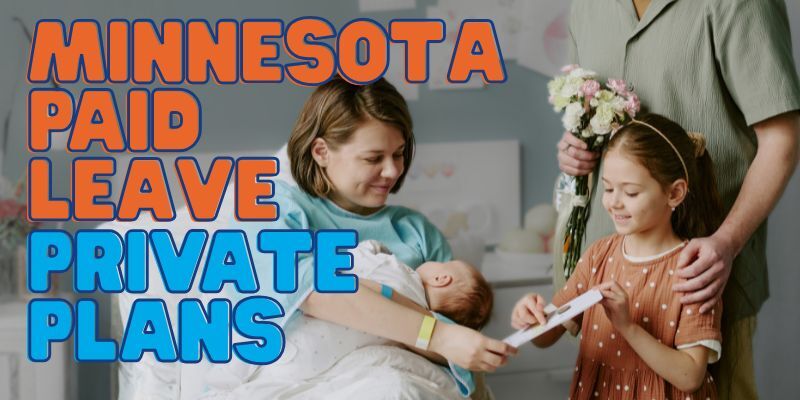MN Paid Family & Medical Leave: Should Small Businesses Choose a Private Plan?
November 6th, 2025 | 5 min. read

If you have any employees in Minnesota, you need to choose between the state plan or a private plan for Paid Family & Medical Leave (PFML) by December 1st, 2025.
That’s because by that date, you need to inform these employees of their rights under their PFML plan. Learn more about your employee notification requirements here.
So, as a small business, should you choose a private plan? Self-insuring isn’t ideal for small businesses, and we don’t think insurance carrier plans will be a popular option, but let’s talk about them!
At CSI Accounting & Payroll, we’ve worked with small businesses for nearly 60 years. We keep our clients informed on relevant law changes, including PFML. So let’s discuss:
- What is a “private plan”?
- What requirements does a private plan need to meet?
- Why does CSI think private plans from insurance carriers and self-insurance plans won’t be popular for small businesses?
What Does “Private Plan” Mean?
A “private plan” is also called an “equivalent plan”. These are alternatives to the Minnesota state PFML plans and come in two forms:
- From insurance carriers.
- Self-insurance.
Insurance Carrier Private Plans
Ask your business insurance carrier if they provide any Minnesota PFML-equivalent plans. Although not as ideal as a state plan, this is a decent option for small businesses because it assures PFML compliance.
Private plans that are done through a business insurance carrier may initially charge higher premiums than the state plan’s required minimum of 0.88% of employee wages for large employers (or 0.66% for small employers), but this may be adjusted downward over time if your employees don’t utilize it as much as the average business.
Self-Insurance Private Plans
Self-insurance plans are ones that your business creates, such as a PTO policy that meets the state’s PFML requirements.
This option is not advised for small businesses, as they require a lot of administrative work and a lot of funding to pay for the time off directly. Plus, there’s a huge risk of not staying compliant.
Private Plan Requirements
If you’re going with a self-insurance private plan, you need to know what the criteria is. Equivalent private plans for PFML must meet the following conditions that are the same or better than the state’s plan:
- Eligibility. All Minnesota employees who would be covered under the state plan must be covered under your plan. Eligibility requirements cannot be stricter than those in the state plan.
- Payments. Weekly payments must be at least equal to those provided by the state plan and separate from other benefits.
- Available leave. The total amount of leave available must be at least equal to the amount provided by the state plan.
- Job protections. Job protections must be at least equal to those provided by the state plan.
- Employee premiums. Costs to employees cannot be more than what their premiums would be under the state plan.
- Leave coverage. For Medical Leave, the equivalent plan must cover any serious health condition, or medical care related to pregnancy, that would be covered under the state plan. For Family Leave, the equivalent plan must cover any care for a family member with a serious health condition, bonding with a child, a family member called to active duty military service, or any safety leave event that would be covered under the state plan.
- Leave schedules. The equivalent plan must offer intermittent leave or reduced schedules consistent with the state plan.
- Conditions or restrictions. The equivalent plan cannot impose any additional conditions or restrictions on the use of leave beyond those in the state plan.
- Separation coverage. Coverage must continue for 26 weeks after employee separation, or until the individual is hired by a new employer. If a leave application is filed by a former employee, the equivalent plan must pay benefits for the full time of leave. Equivalent plans may not cut off eligibility for a former employee during an approved leave.
Small Businesses & Private Plans?
Why doesn’t CSI think that private plans will be very popular among small businesses? Insurance carriers may charge initially higher premiums with no guarantee of lowering them, and self-insurance plans are a bad fit because of their risk potential, plus additional required administrative work and funding.
And for the state plan? Minnesota state says, “Minnesota Paid Leave is often the least expensive and easiest option for employers.” When you go with this state plan, everything is already laid out for you, premiums are more consistent, leave is pre-funded, and you know that the plan will keep you in compliance.
Stay Current & Compliant With a Payroll Specialist!
Now that you know what private plans are, their requirements, and why private plans might not be as ideal for small businesses, are you ready to check out payroll services so you don’t need to sweat the details?
If so, please consider CSI Accounting & Payroll! To see if we can be a good fit for your business, click the button below for a free consultation:
Not ready to talk? That’s okay! First, learn more about what your per-payroll fee may be by clicking the image below:
Bret is the Chief Operating Officer at CSI Accounting & Payroll, a role he stepped into in 2024. He began his journey with CSI in 2007, starting in a marketing position and eventually becoming the Payroll Department Manager, where he played a key role in helping CSI's expansion and long-term success. His background in sales and management – along with a degree in Computer Networking and Certified Payroll Professional (CPP) title – continues to serve him well in a dynamic environment as he leads the way for our Minnesota office.

